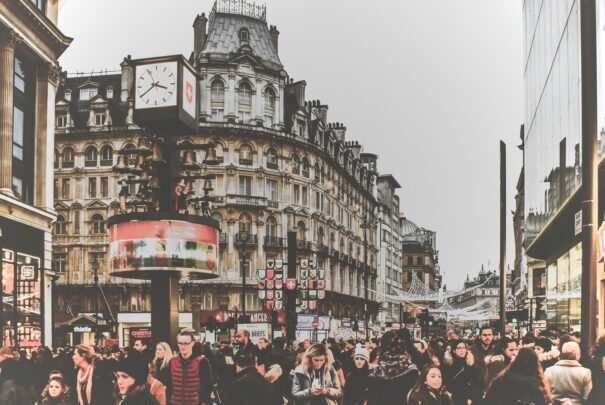According to official data, the UK economy grew by 4.8 percent between April and June, as most firms resumed operations.
According to data from the Office for National Statistics, shops, restaurants, and hotels fueled the growth in gross domestic product (GDP).
As schools resumed in the second quarter, education also benefited the economy. However, the result was somewhat below than the Bank of England’s forecast of 5%.
The GDP of the United Kingdom is currently 4.4 percent lower than it was before the epidemic
• What is GDP and how is it calculated?
. However, Capital Economics predicted that the economy will recover to pre-Covid levels later this year. “We are confident that monthly GDP will return to its pre-pandemic level by October, and that the economy may yet surprise most analysts by emerging from the pandemic unscathed,” said senior UK economist Ruth Gregory.
“Today’s results demonstrate that our economy is on the mend, exhibiting strong indications of revival,” stated Chancellor Rishi Sunak. I recognize that there are still obstacles to overcome, but I am confident in the strength of the British economy and the tenacity of the British people.”
Non-essential shops, as well as gyms, hairdressers, and outdoor eating, reopened in April. Pubs, restaurants, and cafés were permitted to serve clients indoors in May, while theaters, galleries, and cinemas were permitted to open their doors.

Consumer expenditure was the major engine of growth, rising by 7.3 percent in the third quarter, above forecasts.
The UK is not just a nation of shopkeepers, but social animals. And it’s the high proportion of “social spending” – on hotels, restaurants, and entertainment – that has made our economy so vulnerable to lockdowns. The United Kingdom was the quickest decreasing of the G7 nations in 2020, and it may be one of the first of the major participants to recover in 2021 if limitations are lifted.
Despite the Delta version of Covid, the consumer has led the way, driving output to within 5% of pre-pandemic levels. It’s the kind of growth that some said would take much longer to materialize just a few months ago.
But what happens next is unknown. The furlough program, which has safeguarded livelihoods, is set to expire in October. Economists predict some job losses, albeit much less than what was predicted a year ago.
The greatest danger, though, will be new variations and a resurgence of diseases and limitations. Policymakers believe we are done with the latter. They predicted a year ago that there would be no more nationwide lockdowns; let’s hope they’re correct this time.
If that is the case, the UK’s high vaccination rate should help the economy; others are not so lucky. Access to vaccines, whether for health or wealth, may increasingly be the difference between the haves and have-nots as we strive to escape the grip of this pandemic.
Monthly growth is anticipated to be 1% at the conclusion of the quarter in June, which is somewhat higher than most experts predicted.
“Fears that the advent of the Delta version and the ensuing ‘pingdemic’ would have an impact on growth have so far not materialised,” said Hargreaves Lansdowne.
During a month of severe rainfall, the ONS reduced its May number down from 0.8 percent to 0.6 percent.
The government’s wage assistance plan has aided the UK economy. However, since July, companies have been required to contribute to employee salaries, and the program is due to expire at the end of September.
According to Asma Khan, creator and owner of Darjeeling Express, a family-owned Indian restaurant in London’s Covent Garden, the economy is improving but the epidemic is still having an impact on the food industry.

“I’m extremely thankful for the furlough; it’s enabled me to keep my entire crew on leave,” she told the BBC.
“But there was no help for me, and I was still accountable – all the rentals and financial charges added up.” Ms Khan believes the government has not adequately supported the hospitality industry: “I would want Boris Johnson and Priti Patel to come and work a shift in my restaurant.”
